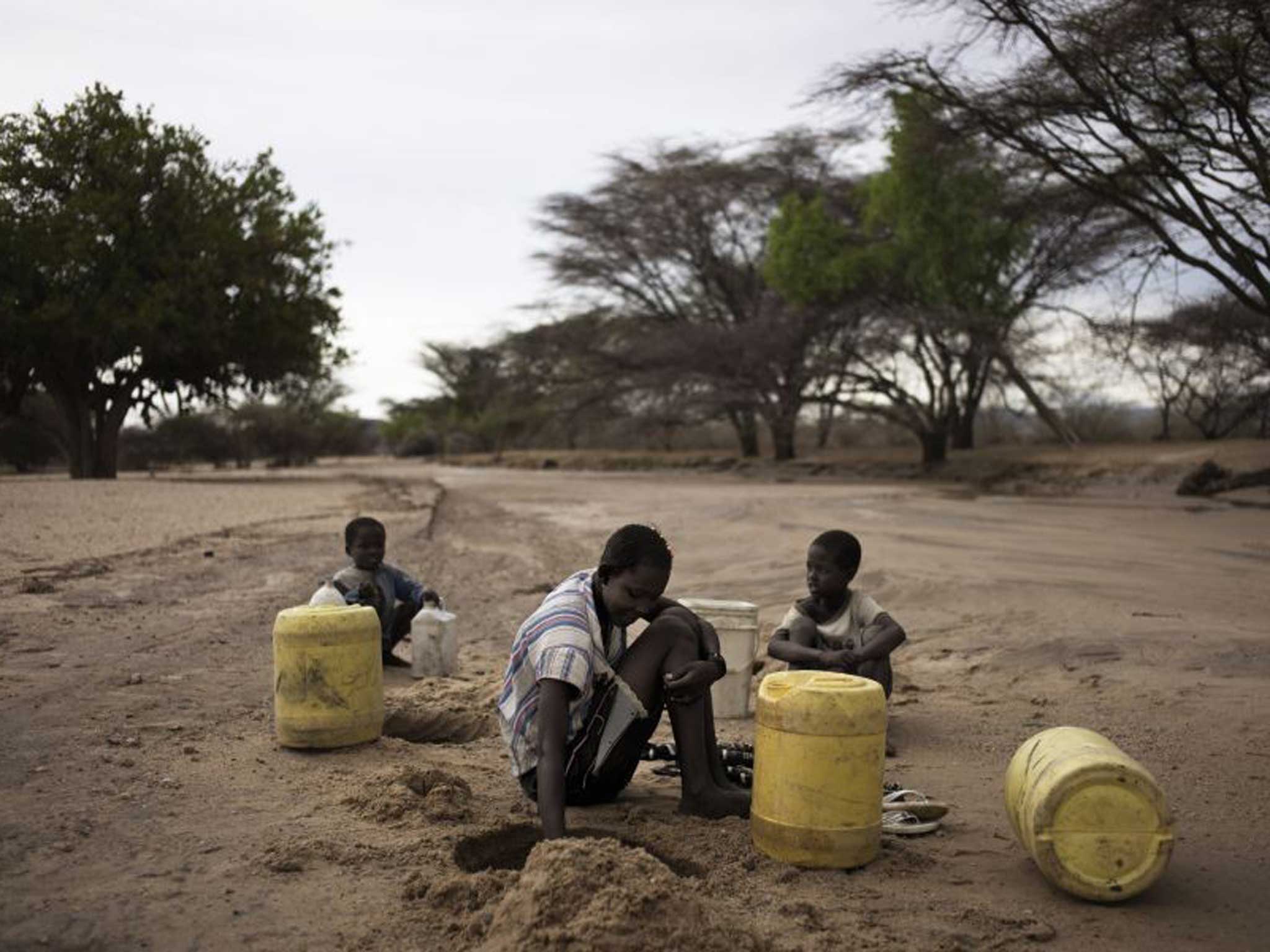State of the Future report: Humans are doing OK, but nature suffers as a result – and we’ll pay for it
Report warns that across the world, water, essential for survival, is running low – with water tables falling in every continent

Your support helps us to tell the story
From reproductive rights to climate change to Big Tech, The Independent is on the ground when the story is developing. Whether it's investigating the financials of Elon Musk's pro-Trump PAC or producing our latest documentary, 'The A Word', which shines a light on the American women fighting for reproductive rights, we know how important it is to parse out the facts from the messaging.
At such a critical moment in US history, we need reporters on the ground. Your donation allows us to keep sending journalists to speak to both sides of the story.
The Independent is trusted by Americans across the entire political spectrum. And unlike many other quality news outlets, we choose not to lock Americans out of our reporting and analysis with paywalls. We believe quality journalism should be available to everyone, paid for by those who can afford it.
Your support makes all the difference.The future's bright – but only if we rise to the challenges which threaten environmental catastrophe, a major new report warns this week.
Future generations are destined to be healthier, wealthier, better educated, and are set to live longer lives, but it will be at an untold cost to the environment unless action is taken to prevent it.
"The global situation for humanity continues to improve in general, but at the expense of the environment," says the authoritative State of the Future report. "We are winning more than we are losing – but where we are losing is very serious.... It is clear that humanity has the ideas and resources to address its global challenges, but it has not yet shown the leadership, policies, and management on the scale necessary to guarantee a better future."
The report – backed by organisations such as Unesco, the Smithsonian Institution and the Rockefeller Foundation, and drawing on contributions from hundreds of experts around the globe – concludes that the world is "improving better than most pessimists know", while "future dangers are worse than most optimists indicate".
The outlook for the next decade is positive, it says. The report details an index based on analysis of 30 factors, ranging from education and health to freedom, the environment and wealth. It began in 1993, and while it "indicates a slower progress since 2007... the overall outlook is promising".
However, it warns that across the world, water, essential for survival, is running low – with water tables falling in every continent. Civil wars and refugee numbers are on the rise, income gaps are "increasingly obscene", youth unemployment has reached "dangerous proportions", and half the world is "potentially unstable", according to the report by the Millennium Project think tank, formerly part of the World Federation of United Nations Associations.
The world is also under threat from organised crime – representing an army of criminality so vast in scale that it takes in £1.8trn a year, around twice as much as the world's military budgets combined.
Although poverty is being reduced faster "than many thought was possible", the divide between rich and poor "is growing faster than many want to admit". Half of the world's wealth is owned by only 1 per cent of the population. This inequality needs to be addressed "if long-term instability is to be avoided".
And the flipside of progress in education means that a new generation is becoming "less tolerant of the abuse of elite power than in the past", with growing youth unemployment meaning "more people have more time to do something about this abuse".
The report warns: "Unless these elites open the conversation about the future with the rest of their populations, unrest and revolutions are likely to continue and increase." And "an increasingly educated and internet-connected generation is rising up against the abuse of power around the world and demanding accountability".
Another driver of change will be the world's growing population, set to increase by a billion in little more than a decade. This will result in "unprecedented demand for food, water, energy, and employment".
Natural resources "are being depleted faster than nature can resupply them", and: "Unless we improve our economic, environmental, and social behaviors, the next 100 years could be disastrous."
Among the recommendations are that the US and China agree on a 10-year environmental goal to reduce climate change, and a worldwide strategy to fight against organised crime.
"It is reasonable to be cautiously optimistic," says Jerome Glenn, director of the Millennium Project and a co-author of the report. "Collective intelligence systems are quickly improving to eventually make us act smarter, wasting less time," he added.
The report's authors conclude: "The world needs hardheaded idealists who can look into the worst and best of humanity to create and implement strategies of success."
Join our commenting forum
Join thought-provoking conversations, follow other Independent readers and see their replies
Comments